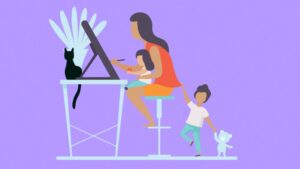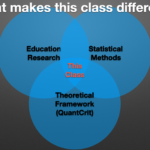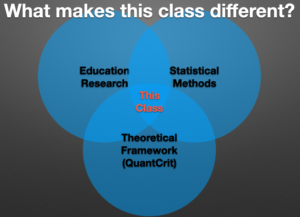
I was on the job market this year. While the opportunities were equal for anyone applying, I wouldn’t call them equitable. In most ways, I am extremely privileged. I am cisgendered, not first generation, Asian, and grew up in a white household. One area I can speak about where my identity has been challenging is interviewing as a mother.
Here are a few snapshots of the experience:
1. SCREEN TIME
I owe a combination of my husband, PBS Kids, and DisneyPlus for giving me the time to work on applications. Most academic jobs require some combination of a cover letter, CV, teaching statement, research statement, and diversity statement. These are not trivial to write, even if they become quicker and quicker to produce. Pre-kids I had no problem putting in extra hours to write. Now it’s more difficult to secure uninterrupted time.
2. “Do you have kids?”
I went to two onsite interviews, and during both, I had people ask if I had kids. One was on the committee and one was not. Although I understand how it came up in the conversation, I (wrongly) thought it would be common knowledge that it is inappropriate to ask. I made the decision to openly share about my family because I wanted to be in a supportive environment, but I’m aware that people have biases and some mothers may want to keep their mothering status private while interviewing.
I also suspect that my appearance as a woman triggered the question. I doubt most men are asked if they have kids.
3. THE ONSITE
The onsite can be stressful, and it can be made more stressful by being away from tiny humans that need your help. During one onsite, I was trying to make conversation over breakfast with a committee member. Meanwhile, my partner was trying to corral our kids for daycare. I left detailed instructions the night before, but there was an unforeseen crisis with a new hole in our kid’s pants. I wanted to focus on the conversation and learn about the programs and how I fit in them, but half of my brain was trying to think of how to help my partner solve the problem. (By the way, I said I was busy and he solved the problem on his own, and did not ask me anything else the entire day.)
4. NURSING
On the subject of my partner, he is wonderful. He cared for our kids alone for 6 days while I interviewed and went to a conference. The one thing that he cannot do that I can do is nurse. So instead of nursing, he took on weaning our 1-yr-old. This was great. That said, the interview, for me, also included major physical and hormonal changes as we underwent the weaning process.
5. GUILT
It is easy to find reasons to feel guilty. Should I even be writing this post? What if by revealing the challenges of being a mother only worsens employer’s biases against hiring them? What opportunities are my kids missing to develop their brains while I let them have screen time (see 1)? Am I signing up to miss the most precious years of my kid’s lives? Am I doing a disservice to my employer by having so many other obligations? Surely other people without kids could spend more time perfecting grant applications or publishing. I can reason away much of this guilt. But the extra noise and then self-regulation takes energy and intention away from other things that require focus.
The takeaway is not: poor mothers, interviewing is so difficult. Rather it is this: challenge your own biases against women and mothers and HIRE THEM! They are efficient, productive humans with extra-strength focus, by necessity. Right now they may have distractions, but if you are patient and give them a chance to keep their careers alive, they bring valuable perspectives from having mentored a human being in every aspect of life for multiple years and personal investment about the educational system they are entering.

